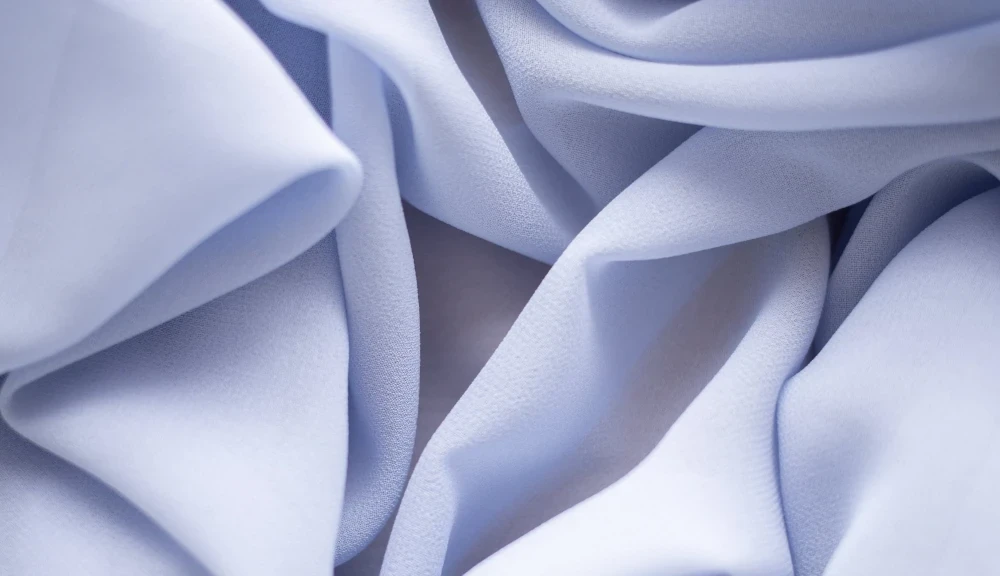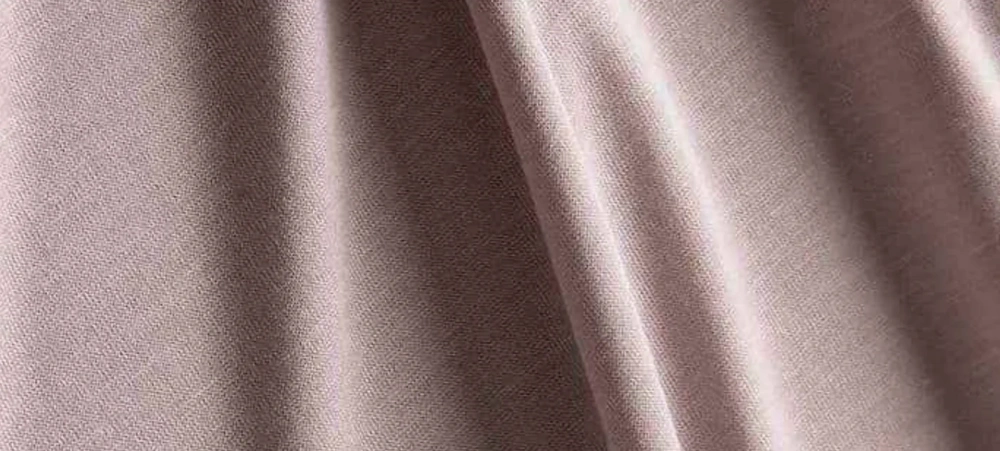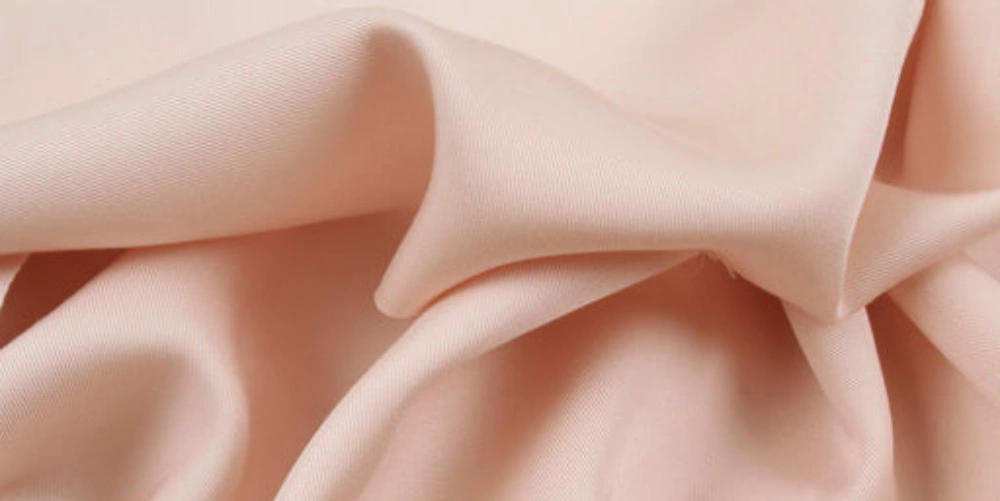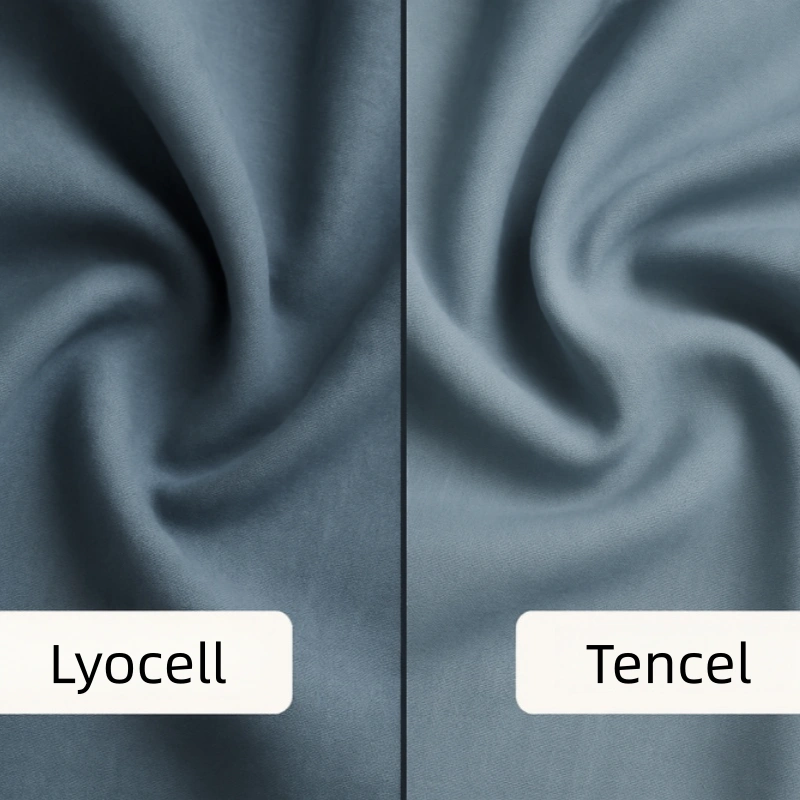You might wonder if Lyocell and Tencel are the same thing. The short answer? Tencel is actually a brand name for a type of Lyocell. This matters when you shop because more people now want fabrics that are soft, eco-friendly, and high-performing.
Many shoppers are turning to Lyocell vs Tencel as a better choice over cotton or modal. Demand keeps rising, thanks to their renewable production and comfort.
Key Takeaways
Tencel is a brand name for a type of Lyocell, both made from wood pulp and eco-friendly processes.
Choose Tencel for premium quality, as it often comes with strict certifications ensuring safety and sustainability.
Both fabrics are soft, breathable, and great for sensitive skin, making them ideal for clothing and bedding.
Tencel excels in moisture-wicking and durability, perfect for activewear and sleepwear.
When shopping, look for products labeled as Tencel for the best comfort and eco-friendly benefits.
Lyocell vs Tencel
Key Differences
You might see “lyocell vs tencel” on clothing labels and wonder what sets them apart. Both fabrics come from wood pulp, and both use a direct solvent spinning process. The main difference is branding. Lyocell is the generic name, while Tencel is a brand owned by Lenzing AG.
Tencel Lyocell and Tencel Modal are two fiber types under the Tencel brand. You get the same soft, breathable, and eco-friendly qualities from both, but Tencel often comes with extra certifications and a reputation for premium quality.
Here’s a quick look at how they compare:
Property | Lyocell | Tencel |
|---|---|---|
Chemical Composition | Primarily cellulose from wood | Primarily cellulose from wood |
Production Process | Direct solvent spinning | Direct solvent spinning |
Environmental Impact | More eco-friendly than viscose | More eco-friendly than viscose |
Branding | Generic term | Branded name for lyocell |
Tencel stands out because it meets strict industry standards. You’ll find certifications like EU Ecolabel, OEKO-TEX® STANDARD 100, FSC®, PEFC, and TÜV AUSTRIA. These labels show that Tencel fibers are safe, sustainable, and biodegradable.
When you choose Tencel, you know you’re getting a fabric that’s good for you and the planet.
Friendtex uses premium Tencel fabrics in many products, including pajamas and underwear. You get comfort, breathability, and less need for frequent washing because Tencel resists odors and bacteria. The fabric feels soft and gentle, making it perfect for everyday basics and stylish fashion pieces.
Why the Confusion
You might feel confused when you see “lyocell vs tencel” on tags or product descriptions. The confusion comes from the way brands use these names. Lyocell is the technical term for the fiber, but Tencel is the branded version.
Some brands use “lyocell” to describe the material, while others use “Tencel” to highlight the premium quality and certifications.
Textile experts say Tencel is just a brand name for Lyocell fibers. Both come from wood sources and use sustainable processes. Tencel Lyocell and Tencel Modal are part of the same family, so you get similar benefits no matter which name you see.
Friendtex makes it easy for you. The brand focuses on premium Tencel fabrics, so you know you’re getting top-quality, eco-friendly garments. You can trust that Friendtex pajamas and underwear offer softness, breathability, and sustainability, all backed by industry-leading certifications.
Quick Comparison
Features Table
You want to see how Lyocell vs Tencel stack up side by side? Here’s a table that breaks down the most important features. This makes it easy for you to spot the differences and similarities at a glance.
Feature | Lyocell | Tencel |
|---|---|---|
Definition | General term for cellulose fabric | Specific brand of Lyocell |
Production Process | Closed-loop system | Closed-loop system |
Quality Control | Varies | Strict standards by Lenzing AG |
Physical Properties | General range of fabrics | Exceptional softness and drape |
Applications | Clothing, home textiles | High-end fashion items |
Environmental Impact | Biodegradable | Biodegradable |
Tip: If you want the softest feel and the highest quality, look for Tencel on the label. Brands like Friendtex use premium Tencel for pajamas and underwear, so you get comfort and sustainability in one package.
Pros and Cons
Let’s make things even easier. Here’s a quick list of what you’ll love about both fabrics, plus a few things to keep in mind.
Pros:
Sustainable and eco-friendly
Excellent moisture absorption
Breathable for all-day comfort
Antibacterial properties
Soft and gentle on the skin
Durable and long-lasting
Versatile for different uses
Cons:
Higher price compared to regular cotton
Some blends may include less eco-friendly materials
You get a fabric that feels great and supports your values. If you want premium quality, Tencel is a smart choice. Friendtex’s Tencel pajamas and underwear offer all these benefits, making them perfect for anyone who cares about comfort and the environment.
What is Lyocell?

Definition
Lyocell is a modern fabric that you often see in soft, breathable clothing. You might notice it feels silky and smooth, almost like a blend of cotton and silk. Lyocell comes from wood pulp, usually from eucalyptus, beech, or spruce trees.
Manufacturers use a special process to turn this wood pulp into strong, fine fibers. You get a fabric that feels gentle on your skin and works well for everything from pajamas to activewear.
You might love Lyocell because it is naturally breathable and absorbs moisture quickly. This means you stay cool and dry, even on warm days. Lyocell also resists wrinkles and holds its shape after washing.
Many people choose it for its eco-friendly reputation. The production uses less water and energy than traditional fabrics like cotton.
Did you know? Lyocell is biodegradable, so it breaks down naturally and is better for the planet.
Production Process
You may wonder how wood turns into such a soft fabric. The Lyocell production process is both high-tech and eco-conscious. Here’s how it works:
Dissolving: Manufacturers start by mixing wood pulp with a special solvent called N-methylmorpholine N-oxide (NMMO) and water. They heat this mixture until the pulp dissolves.
Spinning: The thick solution, called dope, gets pushed through tiny holes in a spinneret. This forms long, thin fibers.
Washing: Next, the new fibers go through a washing stage. This step removes any leftover solvent and water.
Finishing: Finally, the fibers get treated with softeners or lubricants. This makes the fabric even smoother and more comfortable.
You end up with a fabric that feels luxurious and performs well. The closed-loop process recycles almost all the solvent, making Lyocell a smart choice for anyone who cares about sustainability.
What is Tencel?

Definition
Tencel is a special kind of fabric that you might see on clothing labels. You may wonder what makes it different from regular lyocell. Tencel is actually a brand name, owned by Lenzing AG, for a type of lyocell fiber.
When you see Tencel, you know you are getting a fabric made with advanced, sustainable methods. This brand stands out in the textile world because it uses the best available technology and strict environmental standards.
Here’s a quick table to help you see how Tencel compares to generic lyocell:
Aspect | Tencel | Generic Lyocell |
|---|---|---|
Brand | Tencel is a brand name | Lyocell is the generic name |
Production Process | Advanced, sustainable methods | May not use advanced methods |
Environmental Impact | Significantly reduced impact | Higher environmental impact possible |
Industry Status | Dominant in the textile industry | Less recognized in the industry |
Technology | Best Available Technology (BAT) | Varies by manufacturer |
When you choose Tencel, you pick a fabric trusted by top brands. Friendtex uses premium Tencel fibers in their pajamas and underwear. You get a soft, breathable, and eco-friendly product every time.
Production Process
Tencel’s production process is all about protecting the planet. Lenzing, the company behind Tencel, follows strict rules to keep forests safe. They never clear native forests for plantations. Instead, they use responsibly managed eucalyptus trees. This helps protect wildlife and water supplies.
The magic happens in the factory. Tencel uses a closed-loop system that:
Recycles water and solvents, capturing up to 99.8% for reuse.
Turns by-products into biofuel, so almost nothing goes to waste.
Uses sustainably sourced eucalyptus wood, which needs less water and no toxic pesticides.
You get a fabric that feels good and does good. Friendtex’s Tencel Pajamas and Tencel Underwear show how this eco-friendly process creates soft, durable, and luxurious products. If you care about comfort and the environment, Tencel is a smart choice for your wardrobe.
Similarities
Breathability
You want your clothes to keep you cool and comfortable. Lyocell and Tencel both deliver on breathability. Their fibers let air move freely, so you never feel stuffy or sweaty. Here’s what makes them stand out:
Tencel™ fabric has high air permeability, which means air flows through it easily.
Lab tests show Tencel™ allows more airflow than many other fabrics.
The unique fiber structure of Tencel™ makes it lightweight and helps moisture escape, keeping you dry.
You can wear Lyocell or Tencel all day, even in warm weather. You stay fresh and comfortable, whether you’re lounging at home or out and about.
Softness
If you love soft fabrics, you’ll enjoy both Lyocell and Tencel. These materials feel silky and smooth against your skin. You might notice that pajamas or underwear made from Tencel have a gentle touch.
The fibers are round and fine, which means less friction and irritation. You get a fabric that feels luxurious, even after many washes.
Many people with sensitive skin choose Lyocell or Tencel for this reason. You can trust that your clothes will stay soft and comfortable, wash after wash.
Eco-Friendly
You care about the planet, and so do Lyocell and Tencel. Both fabrics come from wood pulp sourced from responsibly managed forests. Their production uses less water and energy than traditional fabrics. You’ll often see eco-labels and certifications on these products, showing their commitment to sustainability.
Certification | Description |
|---|---|
FSC MIX | Made from FSC-certified forests, recycled, and controlled wood |
PEFC | Ensures sustainable forest management |
FSC | Guarantees sustainable sourcing and biodiversity |
EU Ecolabel | Meets high environmental standards throughout the product’s lifecycle |
USDA Biobased | Material comes from renewable biological resources |
You might also spot labels like OEKO-TEX Standard 100, which means the fabric is free from harmful chemicals, or GOTS, which confirms organic status. When you pick Lyocell or Tencel, you make a choice that’s good for you and the environment.
Differences
Durability
You want your clothes to last, right? Tencel Lyocell stands out for its strength and durability. You can count on it to resist breaking and tearing, even after many washes. The fiber structure is naturally tough, so it handles pulling and wear much better than cotton.
Tencel Lyocell shows greater strength compared to cotton.
The fibers resist pulling, tearing, and everyday wear.
The smooth surface helps prevent damage, keeping your garments looking new.
If you choose Tencel pajamas or underwear from Friendtex, you get products that stay soft and strong for a long time.
Moisture Control
Staying dry and comfortable matters, especially for sleepwear and underwear. Lyocell and Tencel both excel at moisture management. Their unique nanofibrillar structure absorbs water quickly and helps regulate humidity.
You feel cool in summer and cozy in winter.
Here’s a quick look at their moisture control features:
Feature | Lyocell (Tencel) Properties |
|---|---|
Water Absorption | High absorption of water and vapor |
Humidity Buffering | Effective thermal regulation |
Nanostructure | Enhances comfort and moisture control |
Microbial Growth Reduction | Reduces microbial growth |
Skin Sensory Perception | Feels smooth and comfortable against the skin |
Adaptive Comfort | Adjusts to the climate for better comfort |
You stay fresh all day, whether you’re lounging or on the move.
Sustainability
If you care about the planet, Tencel is a top choice. The closed-loop production system reuses 99.5% of water and solvents. This means much less water gets wasted. Tencel’s factories also work to lower CO2 emissions, making the fabric more sustainable than linen or other fibers.
Tencel’s process uses less water than traditional methods.
The carbon footprint is lower, thanks to efficient production.
You support eco-friendly practices every time you pick Tencel from Friendtex.
Cost
You might wonder about the price difference. Lyocell usually costs around $25 or more per meter. Tencel, on the other hand, averages $15–$17 per meter.
Fabric Type | Average Cost per Meter |
|---|---|
Lyocell | $25+ |
Tencel | $15–17 |
You get premium quality and sustainability with Tencel, often at a better value.
Choosing the Right Fabric

For Clothing
When you shop for clothing, you want something that feels good, lasts long, and is easy to care for. Both Lyocell and Tencel offer these benefits, but Tencel stands out for its premium quality and certifications. You might notice that Tencel feels soft and breathable, similar to rayon.
It keeps you comfortable all day, whether you’re at work or relaxing at home. Tencel is strong, even when wet, so your clothes stay in great shape after many washes. You won’t have to worry about wrinkles because Tencel dries quickly and resists creasing.
Lyocell also gives you a smooth and soft texture. You’ll enjoy how it absorbs moisture and releases it fast, keeping you cool and dry. Lyocell is durable and eco-friendly, thanks to its closed-loop production system. If you care about the environment, both fabrics are smart choices.
Here’s a quick list of what to look for in clothing:
Softness and breathability for all-day comfort
Strength and durability for long-lasting wear
Easy maintenance with wrinkle resistance
Eco-friendly production for a greener wardrobe
Hypoallergenic properties for sensitive skin
If you want the best in comfort and sustainability, check out Friendtex’s Tencel Pajamas and Tencel Underwear. These products use premium Tencel fibers, making them soft, breathable, and gentle on your skin. You get luxury and peace of mind in one package.
For Bedding
Your bedding can make a big difference in how well you sleep. Studies show that the type of material you choose affects sleep quality. While there isn’t much research comparing Lyocell and Tencel directly to other bedding fabrics, many people love these materials for their softness and breathability.
Lyocell and Tencel bedding helps regulate temperature, so you stay cool in summer and cozy in winter. The moisture-wicking properties keep your sheets fresh and dry. You’ll notice that these fabrics feel smooth against your skin, which is great if you have sensitive skin or allergies.
If you want bedding that feels luxurious and supports better sleep, look for products made with Tencel or Lyocell. Friendtex’s Tencel Pajamas are also perfect for bedtime, giving you comfort and breathability all night long.
Comfort, Sustainability, Budget
Choosing between Lyocell and Tencel can feel tricky, but you can make it easier by focusing on what matters most to you. Here’s a practical checklist to help you decide:
Set Your Priorities: Think about what you want most—softness, breathability, or eco-friendly certifications. If you have sensitive skin, choose high-quality fibers.
Research Brands & Read Reviews: Look for feedback about comfort and skin feel, not just style or color.
Shop Sales or Outlet Deals: Watch for discounts on premium lyocell or Tencel products, especially during seasonal changes.
Start Small: Try one item first before buying more, so you can test the feel and fit.
Check Product Details: Make sure the product uses 100% lyocell or Tencel, has a good thread count (around 300 for bedding), and includes quality certifications.
You want comfort, sustainability, and value for your money. Tencel offers softness, breathability, and durability. It’s shrink-resistant, easy to care for, and made from natural cellulose, so it’s biodegradable. Lyocell also provides a smooth texture, moisture control, and eco-friendly production.
If you want the best experience, Friendtex’s Tencel Pajamas and Tencel Underwear stand out for their comfort and sustainable design. Customers rave about the softness and quality, making these products top choices for anyone who cares about luxury and the planet.
Here’s a look at what customers say about top-rated Tencel products:
Brand | Best For | Customer Review |
|---|---|---|
Friendtex | Pajamas, Underwear | “Unmatched softness and breathability. Perfect for sensitive skin!” |
tentree | Every day, Loungewear | “Soft! Super soft fabric, great quality just like all my Tentree items!” |
Organic Basics | Intimates, Basics | “Excellent Quality Items: Flattering and so freaking soft!” |
Quince | Affordable Luxury | “Perfect staple: Love the fit and feel of the dress. Material feels upscale.” |
Whimsy + Row | Patterned Dresses | “High quality, adorable, and effortless summer dress. Can’t wait to wear it!” |
Tip: If you want a fabric that feels great, lasts long, and supports the environment, Tencel from Friendtex is a smart choice for both clothing and bedding.
Conclusion
You now know the key points about Lyocell and Tencel. Both fabrics come from wood pulp, feel soft, and use eco-friendly closed-loop processes. Tencel stands out as a branded lyocell with extra certifications and premium quality.
Tencel offers superior moisture-wicking and breathability, perfect for activewear and sleepwear.
Lyocell and Tencel both use non-toxic, safe production methods.
Many people ask about softness, eco-friendliness, and durability when choosing between them.
Feature | Friendtex Tencel | Other Brands |
|---|---|---|
Softness | Superior | Moderate |
Breathability | Excellent | Good |
Eco-friendliness | High | Varies |
If you want comfort and sustainability, Friendtex’s Tencel pajamas and underwear are top picks. Use the checklist above to find your perfect fabric match!
FAQ
What’s the main difference between Lyocell and Tencel?
Tencel is a brand name for premium lyocell fibers. Both come from wood pulp and use eco-friendly processes. Tencel often has stricter quality controls and more certifications, so you get extra peace of mind.
Is Tencel safe for sensitive skin?
Yes! Tencel feels soft and smooth. It’s hypoallergenic and gentle, so you can wear it even if you have sensitive skin or allergies. Many people choose Tencel pajamas and underwear for this reason.
How do I care for Tencel or Lyocell clothing?
You can machine wash these fabrics in cold water. Use a gentle cycle and mild detergent. Tumble dry on low or hang to dry. Avoid bleach. Your clothes will stay soft and last longer with simple care.
Are Lyocell and Tencel really eco-friendly?
Absolutely! Both use wood from responsibly managed forests and a closed-loop process that recycles water and solvents. You help reduce your environmental impact when you choose these fabrics.
Tip: Want the softest, most sustainable sleepwear? Try Friendtex’s Tencel pajamas and underwear for comfort you can feel good about!


